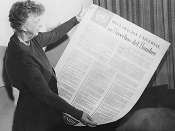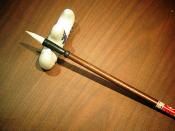The one-child policy is a policy enforced by the Chinese government that allows only one child to be born per family, which includes consequences if not abided by. Initial birth control was introduced over 55 years ago in china, when the government stopped encouraging large families due to a population boom. The one-child policy was introduced in 1979, is still active for over 25 years, and has since affected the lives of more than one billion people in what is the most populous nation in the world. It does prove to be effective (china's growth has dropped to 0.5% by 1985 and is hopeful to have reached zero percent by 2000. The policy does not enforce people living in rural areas. In case of twins, or any other multiple births, the benefits of having one-child remains.
China has researched the effects of having 1-3 children per family. According to the Chinese estimates, at 1.5
children per family, all people are full fed and housed. Anything above that will cause poverty (2 children per family), severe hardship, starvation (2.3 children per family), and death when there are 3 children per family.
Since the introduction of the one-child policy, fertility rate has gone down from over two births per woman, to about 1.6. This small change does not seem really that significant; however, the Chinese say that the change has decreased their population by 400 million people than what would have been if the policy was not enforced. This reduction of fertility rate has reduced the hardship of problems that come with overpopulation, but still, over 600 million Chinese live with less than 2 dollars a day.
The one-child policy also holds some other benefits that are not connected to population. Since family planning has become a big thing in China, the...


